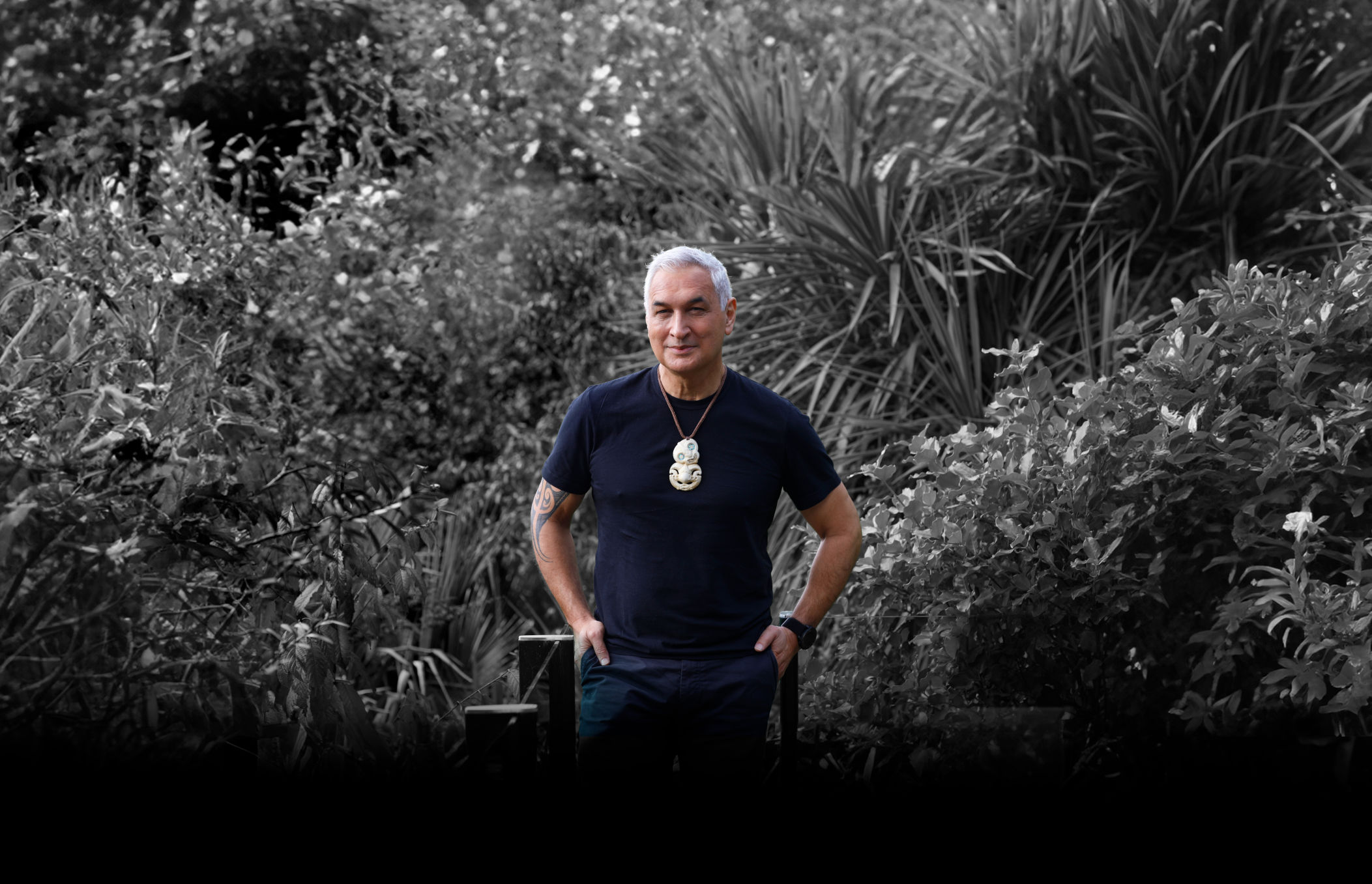Mike McRoberts
The Treaty is a promise to look after each other
If you strip away the division and controversy, Te Tiriti o Waitangi boils down to something very simple for Mike McRoberts. “It was a promise between two peoples to look after each other,” says the award-winning broadcaster and journalist. “We have to work together as a nation to find a situation where it’s not the source of division and where it’s something that is understood and accepted.”
It’s a concept he’s thought about a lot.
“There’s this wonderful whakataukī [proverb], ‘Ka ora pea au i a koe, ka ora koe i a au’ which means, ‘If you’re well, I’m well’. That’s how I feel about the Treaty and how it should be.”
Mike, who presented the news on 3News and Newshub for 20 years and is now embarking on a new career as the Te Ao Māori editor for NBR, has been on a journey of discovery about the Treaty and his own place in the Māori world he grew up not knowing much about. He shared his personal story about that journey in the acclaimed documentary Kia Ora, Good Evening, and the reaction to it showed him people are hungry to understand more.
After the documentary, he would get Māori approach him to chat about their own journeys.
“But there was a great response from Pākehā, too. I’d get emails where they’d say, ‘I had no idea Māori felt like this, that it’s such a big thing’,” Mike says.
“I think for them to watch someone who they’d seen and trusted on the TV in their living rooms for 20 years, sobbing like a baby because of his lack of reo Māori, was a really significant moment for them.”
He believes that if people understood Te Tiriti and the true intent, too, there would be less
fear and ignorance.
“It’s about making sure that everyone is looked after,” he says. “Just because you lift up one part of the population doesn’t mean to say other parts of the population go down – we all get lifted. “It’s so crazy that people can’t get that concept or believe it’s true.”
In a way, though, his upbringing helps him see how people’s lack of knowledge might lead
them to fill the void with misinformation, or misunderstand the treaty.
Mike grew up in Christchurch, the son of a Pākeha mother and a Ngāti Kahangunu father
who had been brought down to the South Island from Wairoa as part of a Māori trade
training scheme.
“It was very much a government assimilation programme, and my father and his friends were doing their best to try and fit in and assimilate. So anything to do with the Treaty back then was spoken of with such disdain – it breaks my heart to think of it now.”
The only time he remembers Te Tiriti being mentioned at school was when he was about 11
years old.
“It was in relation to American history and the teacher said something like, ‘Thank goodness the Treaty was signed in 1840 otherwise Māori would have been slaves’,” Mike recalls.
“I was the only Māori kid in the class and it had a massive effect on me.”
He didn’t know much more about the Treaty until he was a journalist and required to cover
events such as Waitangi Day.
“That’s when I started reading into it, but even then – about 25 years ago – there wasn’t
really much around.”
As his understanding has grown, he’s come to see what those rangatira (chiefs) who signed
Te Tiriti were trying to do, and how their wishes would have been beneficial for the whole
country if they’d been honoured.
“The influence of the environment, of our forests, of our awa [rivers], of our moana [oceans], of our whenua [land] – it was huge. When you read that in the context of Te Tiriti o Waitangi now, you understand what they wanted and what was important to them and maybe if that had been acknowledged and respected over the years we wouldn’t be in the situation we are at the moment with our waterways and with the environment.”
Mike says he has hope there can be unity over the Treaty, particularly thanks to rangatahi
(youth) – something veteran artist and activist Tame Iti helped him understand.
At the Waitangi celebrations this year, Tame led a powerful yet peaceful protest which Mike
was there to report on.
“I spoke with Tame afterwards and he said, ‘We can’t do that old stuff any more – the kids, the rangatahi, they want to be peaceful; something grand, not just screaming’.”
“And he’s right and so that’s how the younger generation are influencing what’s happening.”
He dreams that one day, with more education and more conversations, all New Zealanders
will see there’s nothing to be frightened of.
“There’s no doubt that Te Tiriti was a really crucial part of our history and the formation of us as a nation and it needs to be understood and accepted. As Sir James Hēnare said, ‘Ko te mana te kupu, ko te kupu te mana’. The authority of the word is so important.”
 -
-